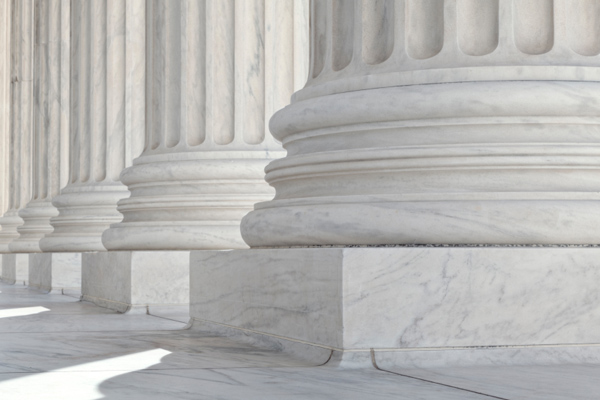Northeastern grads triumph in DOMA challenge

Three School of Law alumnae played key roles in the May defeat of the federal Defense of Marriage Act, which defines marriage as a union between one man and one woman.
Mary Bonauto, L’87, who serves as civil rights project director for Gay & Lesbian Advocates & Defenders, and Maura Healey, L’98, chief of the Massachusetts Attorney General’s Public Protection and Advocacy Bureau, argued the case before a federal appeals court in Boston. The team supporting GLAD included Amy Senier, L’08, an associate with Foley Hoag in Boston.
“[This] landmark ruling makes clear once again that DOMA is a discriminatory law,” said Massachusetts Attorney General Martha Coakley. “It is unconstitutional for the federal government to create a system of first-and second-class marriages, and it does harm to families in Massachusetts every day.”
The ruling by the US Court of Appeals for the First Circuit came down nine years after the Massachusetts Supreme Judicial Court became the first court in the Western Hemisphere to approve same-sex marriages. The case will likely be argued before the US Supreme Court in early 2013.
DOMA, enacted by Congress in 1996, limits federal marital benefits to same-sex couples, such as Social Security survivor benefits and the ability to file joint tax returns.
The appeals court ruled unanimously in two related cases. In Gill v. Office of Personnel Management, Bonauto represented seven same-sex couples and three surviving spouses of marriages affirmed in Massachusetts. The plaintiffs claimed that DOMA’s section 3 violates equal protection guaranteed by the Due Process Clause of the Fifth Amendment, citing higher taxes and a lack of health and survivor benefits in comparison to married heterosexual couples.
On behalf of Massachusetts, Healey argued a companion case against the US Department of Health and Human Services. She claimed that section 3 of DOMA is unconstitutional on the grounds that the 10th amendment reserves power not delegated to the federal government by the Constitution to the states or the people.
A federal judge in Boston ruled in 2010 in favor of both Massachusetts and the same-sex couple plaintiffs. The federal government appealed.
Appeals Court Judge Michael Boudin wrote the unanimous decision for a three-judge panel. “Under current Supreme Court authority, Congress’ denial of federal benefits to same-sex couples lawfully married in Massachusetts has not been adequately supported by any permissible federal interest,’’ he wrote.
If DOMA were left intact, Boudin noted, then same-sex couples legally married in Massachusetts would be denied federal benefits routinely provided to heterosexual couples. That, he said, cannot withstand legal scrutiny.





